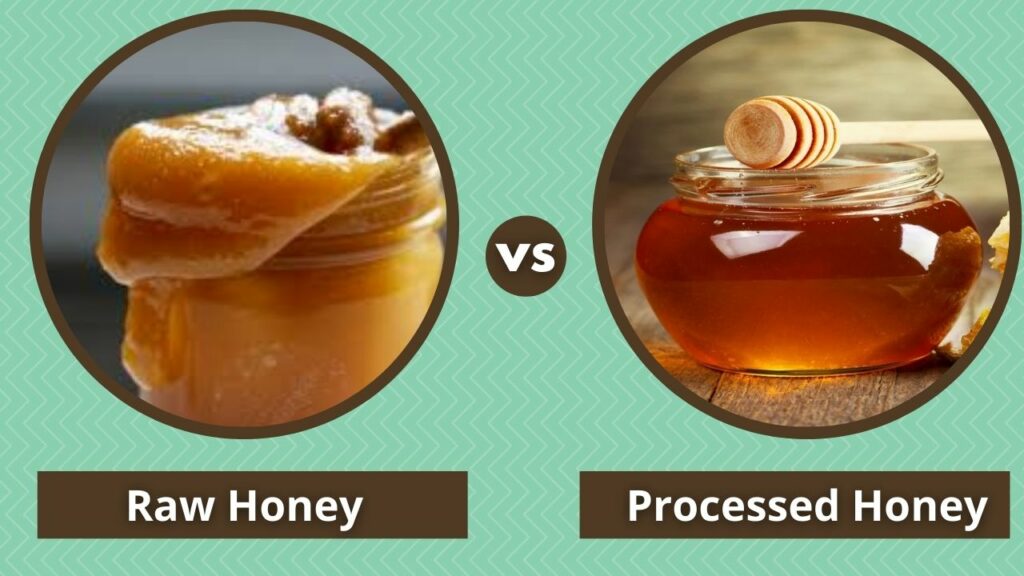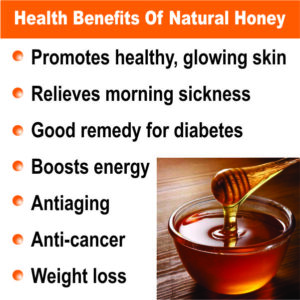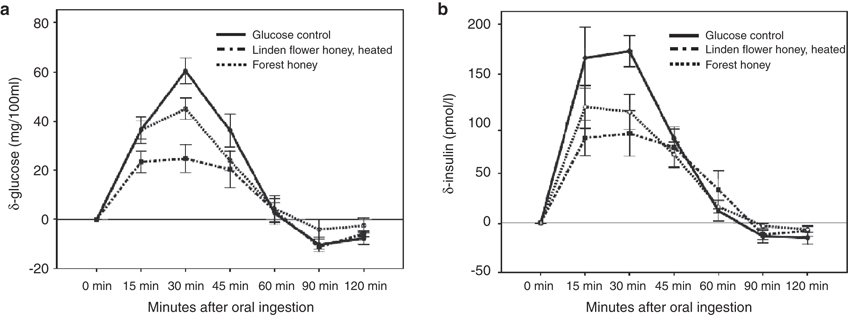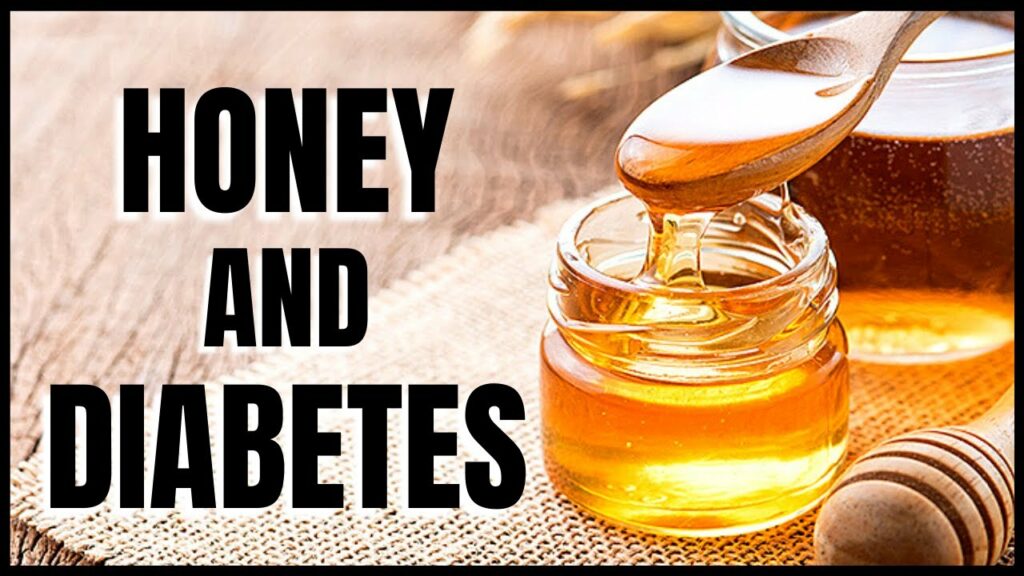Contents
Honey And Diabetes
People with diabetes use honey as both food and medicine. It has many health benefits for many diseases like diabetes, tuberculosis, etc. It is much healthier than sugar. This is so because it contains fewer calories as compared to sugar. For diabetics, honey is the best alternative component to use instead of sugar.
Honey is another type of sugar. It is a natural sweetness that comes from nectar by honeybees. It is made up of water and a mixture of two sugars: fructose and glucose, In which, glucose contains sugar up to 30 to 35 percent, and fructose contains sugar for about 40 percent.
Also, it presents a small amount (approximately 0.5 percent) of vitamins, minerals, and other antioxidants. This makes honey nutritious. Honey has roughly 17 grams of carbs and 60 calories per tablespoon.
On the other hand, traditional white sugar, often known as sucrose, is 50 percent glucose and 50 percent fructose. For about one tablespoon of white sugar, there are 13 grams of carbohydrates with no vitamins or minerals. This shows that honey is healthier than white sugar. But, a diabetic should always have a controlled hand on honey too.
Types of Honey

There are mainly two types of honey, that vary according to the source of nectar that affects the taste of honey and its color.
Raw Honey
Unfiltered honey is another name for raw honey. This honey comes from a beehive. It is then filtered to remove toxins. Earlier, raw honey was used as a folk treatment for centuries. It also has a wide range of health and medical benefits.
It’s even utilized as wound therapy in some hospitals. Moreover, it is a good source of many antioxidants. Raw honey has antibacterial and antifungal properties. This type of honey not only helps in digestive issues but also helps in healing wounds.
Processed Honey
Processed honey is over pasteurized for a thin consistency. This type of honey is filtered and structured many times. It gives honey a transparent and presentable structure.
The process includes heating, filtration, ultrasonication, creaming, microwave radiation, gamma radiation, and also helps in eliminating all the impurities from honey.
Processed honey has fewer benefits as compared to raw honey. However, most people prefer buying processed ones to use at home.
Difference Between Honey And Other Sweeteners
As honey contains less GI value than sugar, you can use honey as an alternative to it. Due to this, it is capable of offering various other areas of difference as compared to other sweeteners:
- Because of its low GI value, it does not raise blood sugar levels and proves itself to be better than other sweeteners.
- It is sweeter than sugar which implies that intake of honey should be limited. For diabetic people, honey is the healthier option in substitute for sugar.
- There is no actual benefit of replacing honey with sugar. For those trying to optimize their insulin levels, honey, in some way, can benefit them, while other sweeteners fail to do so.
Moreover, it is to note that overconsumption of both honey and other sweeteners can create major health problems. While honey can be the better option for diabetics as it contains more nutrients than other sweeteners. The flavours and textures of commonly used sweeteners that is honey and sugar are vastly different.
You probably prefer the tenderness of honey on your morning toast over the molasses flavour and moisture of brown sugar in baking. Experiment with each while keeping track of how much you use, to see which is best for you.
Although honey has more benefits, both honey and sugar can be harmful to your health if taken in excess. If you have diabetes or heart disease, or if you want to lose weight, talk to your doctor and a nutritionist about your dietary requirements. They can collaborate with you to come up with the ideal dietary strategy for your betterment.
Benefits Of Honey For Diabetic
In a study, it is found that people with type 2 diabetes can use honey. Honey has the potential to raise your insulin levels. This also helps you to control your blood sugar. It is a source of antioxidants and has anti-inflammatory qualities which help in replacing sugar with honey.
Nutritive Value

Honey contains many nutritive values such as vitamins, minerals, and some other antioxidants. It also has no fibre, fat, or proteins. Rather it contains more energy and water.
Hence, contains fewer risk factors as compared to sugar for diabetics. Antioxidant-rich foods contain honey that can help your body to digest it effectively.
Moreover, honey’s anti-inflammatory effects may help you avoid diabetes complications.
Health Benefits

Honey contains many antioxidants that will help in lowering your blood pressure, improves cholesterol levels, triglycerides levels, and improves other heart-related diseases.
Besides this, it also helps in curing diseases like dizziness, fatigue, tuberculosis, eye diseases, healing of ulcers and wounds. Also, honey will help you in decreasing the risks of metabolic diseases.
Moreover, researchers also found that honey helps in fighting inflammatory processes. These inflammatory processes occur due to diabetes, atherosclerosis, and cardiovascular diseases.
All these diseases are the features of metabolic syndrome. However, combining diabetes medications with honey may also benefit you in many ways. But these findings still need to be confirmed.
Ways To Use Honey Safely
Honey is considered an added sugar in the diet, even though it is natural. However, diabetics can safely enjoy honey when consumed in moderation. Thus, you may also prefer fibre-rich foods such as vegetables, fruit, whole grains, nuts, seeds, and legumes that can help with blood sugar management.
Any meal or snack containing honey needs to be balanced with other healthful, low-carbohydrate items. Here are some of the ways by which you can use honey safely:
Use of Honey With Yogurt
To keep your blood sugar levels under control, eat pure honey with yoghurt first thing in the morning. Repeat this every day for a month, and witness the gradual drop in your blood sugar levels.
Honey And Cinnamon
This popular combination is a three-in-one diabetes cure. It increases metabolism, decreases cholesterol, and helps in weight loss. In addition to managing an increase in blood sugar levels.
Honey, Ginger And Lemon Tea
Tea made with honey and ginger, with a touch of lemon has antibacterial and antioxidant qualities. It helps to promote digestion and immunity. Lemons are high in vitamin C and potassium, which help to strengthen the immune system and purify the body of disease-causing free radicals.
Effect of Honey on Diabetic Factors
It is advisable to monitor the effect of honey or any other sweetener with care. In the forthcoming sections, you will see the effect of honey on two major diabetic factors: insulin and blood sugar.
Honey And Insulin

Insulin is a hormone produced by the pancreas that helps in blood sugar regulation. When blood sugar levels begin to rise, the pancreas receives a signal to release insulin. It then functions as a key, unlocking cells and allowing glucose to flow from the bloodstream into cells where it can be used for energy. Blood sugar levels are reduced as a result of the whole procedure.
Moreover, honey is already proven in certain studies to generate a stronger insulin response than other sugars. As a result, some people have theorized that honey is beneficial to diabetics and may even prevent diabetes.
People with diabetes can either no longer generate insulin (type 1) or can no longer use insulin correctly (type 2). When type 1 diabetes does not have enough insulin or it does not use as correctly by the body, then glucose (sugar) stays in the bloodstream. This resulting in high blood sugar levels (hyperglycemia).
Honey and Blood Sugar
Honey is different from white sugar because sugar does not have many vitamins and minerals. If you have diabetes, honey is not likely to benefit you but affects your blood sugar in many ways. Honey has a lower glycemic index than sugar, too. The glycemic index measures how quickly carbohydrates raise blood sugar levels.
Honey has a GI value of 58, whereas sugar has a GI value of 60. That means honey (like all carbohydrates) raises blood sugar quickly, but not quite as fast as sugar. Hence, not making a big difference. It can negatively affect your blood sugar and your ability to take the right amount of insulin.
Replacing Honey With Sugar
Honey can be used to replace refined sugars like white sugar, turbinado sugar, cane sugar, and powdered sugar. People should, however, use it in moderation. It, too, can cause blood sugar levels to rise. Especially when used in place of another sugar.
Some producers make honey that isn’t 100% pure and may contain added sugars or syrups. It’s also worth noting that raw honey may contain a toxin that might induce botulism or be harmful to infants under the age of one year.
Moreover, honey provides nutrients to other foods like fresh fruits and vegetables that are greater sources of the nutrients, as well as provides more fibre and water, which helps to keep blood sugar levels in check. Diabetics should consume sweeteners of any kind frequently. It is because frequent use of sweeteners will cause less spike in blood sugar levels.
Risks Of Honey For Diabetics
Honey has some nutrients that are beneficial to your health. You would have to take a bit more than honey to obtain any major benefit from it. A significant quantity of honey is not worth consuming. This is only to obtain additional vitamins and minerals.
As other sources of these nutrients will have far less impact on blood sugar levels. You only need a small amount of honey to replace sugar. Following are some of the risks factors that honey causes to diabetics:
Impact Of Honey On Blood Sugar
Diabetics should avoid honey and other sweeteners until diabetes is under control as it can impact blood sugar. It should only be taken in little amounts. Before using it as a sweetener, consult your healthcare professional. Pregnant women and adults with weak immune systems, on the other hand, are at risk.
Impact Of Honey In Baby Botulism
Another risk factor of honey includes infants under the age of 12 months. This is due to the danger of baby botulism. It can transmit from both raw and pasteurized honey. However, it is safe for anyone over the age of one. Botulism of the intestine in adults is extremely rare. That’s why honey causes fewer indications of diabetes in them.
Prevention of Diabetes With Honey
No study has yet not found supporting honey as a diabetes prevention factor. However, the fact is that honey enhances insulin levels and assists diabetics to control their blood sugar. According to researchers, honey also reduces glycemic index values.
When compared to sugar, honey had a lower glycemic effect on all participants in a study of 50 persons with type 1 diabetes. On the other hand, 30 people without type 1 diabetes have lower glycemic effects. It also increases C-peptide, a chemical released into the bloodstream when the body manufactures insulin. Moreover, a normal C-peptide means your body is making sufficient insulin.
A Word From Mantra Care
Hence, substituting honey in place of sugar gives no advantage to your diabetes eating plan. As honey contains few more calories and carbohydrates than granulated sugar. It is why honey should be used in limit. Though, many types of research are still going on to find out whether honey can prevent diabetes or can provide treatments for diabetes.
Do you want to get rid of diabetes? Join our online diabetes consultation program and reverse your Diabetes naturally through lifestyle changes such as a Personalized Diet plan, Exercise, dieticians, and health coaches.


